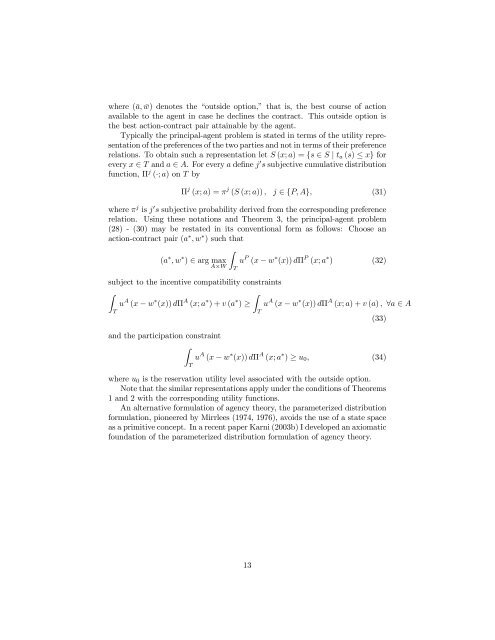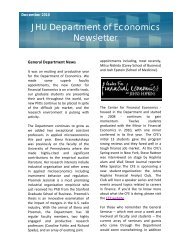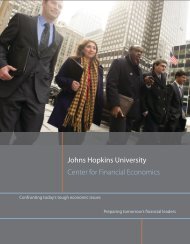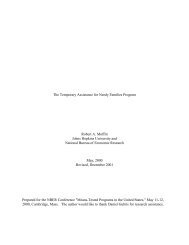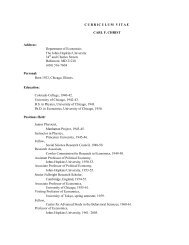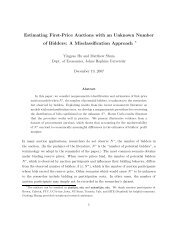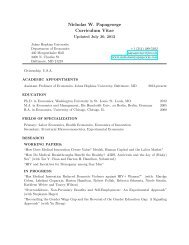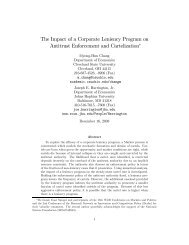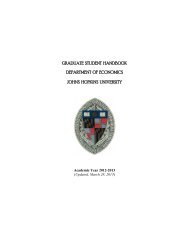Subjective Expected Utility Theory with Costly Actions - Economics ...
Subjective Expected Utility Theory with Costly Actions - Economics ...
Subjective Expected Utility Theory with Costly Actions - Economics ...
You also want an ePaper? Increase the reach of your titles
YUMPU automatically turns print PDFs into web optimized ePapers that Google loves.
where (¹a; ¹w) denotes the “outside option,” that is, the best course of action<br />
available to the agent in case he declines the contract. This outside option is<br />
the best action-contract pair attainable by the agent.<br />
Typically the principal-agent problem is stated in terms of the utility representation<br />
of the preferences of the two parties and not in terms of their preference<br />
relations. To obtain such a representation let S (x; a) =fs 2 S j ta (s) · xg for<br />
every x 2 T and a 2 A. For every a de…ne j 0 s subjective cumulative distribution<br />
function, ¦ j (¢; a) on T by<br />
¦ j (x; a) =¼ j (S (x; a)) ; j 2fP; Ag; (31)<br />
where ¼j is j0s subjective probability derived from the corresponding preference<br />
relation. Using these notations and Theorem 3, the principal-agent problem<br />
(28) - (30) may be restated in its conventional form as follows: Choose an<br />
action-contract pair (a ¤ ;w ¤ ) such that<br />
(a ¤ ;w ¤ ) 2 arg max<br />
A£W<br />
subject to the incentive compatibility constraints<br />
Z<br />
Z<br />
u<br />
T<br />
A (x ¡ w ¤ (x)) d¦ A (x; a ¤ )+v (a ¤ ) ¸<br />
and the participation constraint<br />
Z<br />
Z<br />
u<br />
T<br />
P (x ¡ w ¤ (x)) d¦ P (x; a ¤ ) (32)<br />
u<br />
T<br />
A (x ¡ w ¤ (x)) d¦ A (x; a)+v (a) ; 8a 2 A<br />
(33)<br />
u<br />
T<br />
A (x ¡ w ¤ (x)) d¦ A (x; a ¤ ) ¸ u0; (34)<br />
where u0 is the reservation utility level associated <strong>with</strong> the outside option.<br />
Note that the similar representations apply under the conditions of Theorems<br />
1 and 2 <strong>with</strong> the corresponding utility functions.<br />
An alternative formulation of agency theory, the parameterized distribution<br />
formulation, pioneered by Mirrlees (1974, 1976), avoids the use of a state space<br />
as a primitive concept. In a recent paper Karni (2003b) I developed an axiomatic<br />
foundation of the parameterized distribution formulation of agency theory.<br />
13


